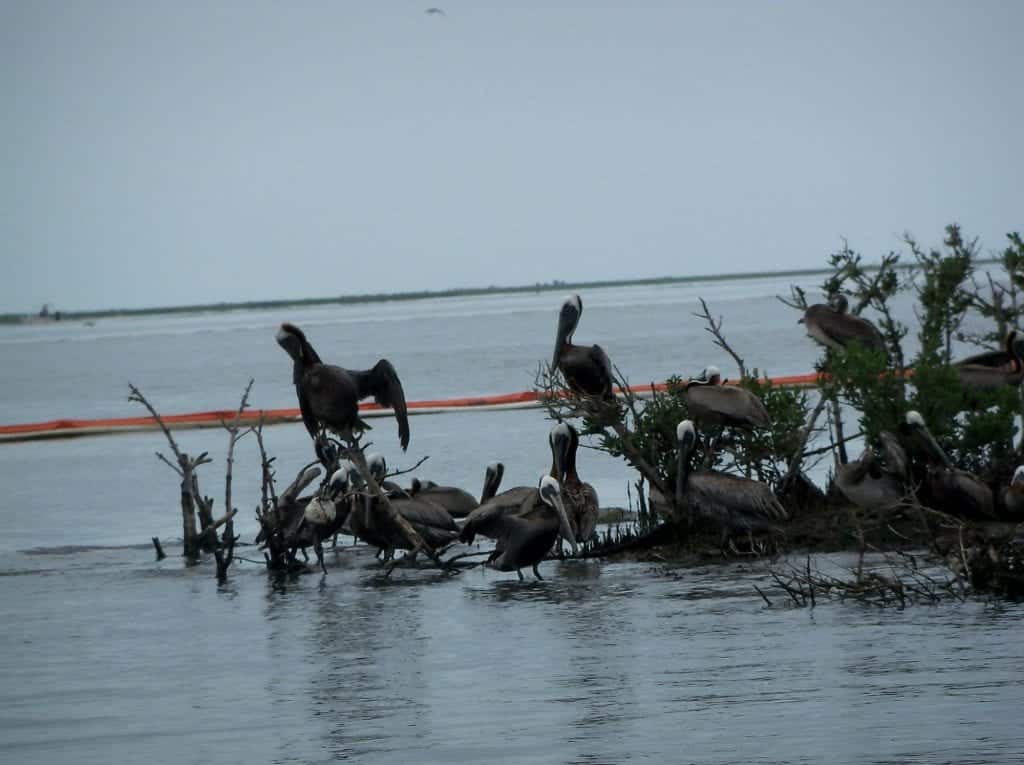
The changes to the Migratory Bird Treaty Act (MBTA) most recently proposed by the Trump Administration are almost impossible to comprehend. Proposed rules state that migratory bird death will only be prosecuted if the express purpose of the action was to intentionally kill birds. This means that the majority of actions that result in the death of migratory birds, such as oil spills or habitat destruction, will not be subject to enforcement under the MBTA.
As I have been trying to wrap my head around the far-reaching consequences of the proposed regulations, it has me reflecting on my career in conservation biology and how the MBTA has directly–and positively–influenced it.
Click here to support legislation to restore the Migratory Bird Treaty Act
My first foray into wildlife biology was in Prince William Sound, Alaska, in 1999. I was an eager 20-year-old biology student, fortunate enough to be able to pursue a summer job that did not pay well. I stumbled into a project working with the U.S. Fish and Wildlife Service (USFWS) to study the Black-legged Kittiwakes’ foraging behavior.  The project was largely funded by monies paid to mitigate environmental damage caused by the Exxon-Valdez spill a decade prior–monies that were directly attributable to the MBTA. The woods and waters of southern Alaska teemed with more life than I have seen anywhere since, but it only took a foot kicking away cobbles to find pools of crude oil from the spill here ten years earlier. It struck me then that, though this disaster cannot be fully compensated for, the money resulting from the MBTA was ultimately leveraged into many more benefits.
The project was largely funded by monies paid to mitigate environmental damage caused by the Exxon-Valdez spill a decade prior–monies that were directly attributable to the MBTA. The woods and waters of southern Alaska teemed with more life than I have seen anywhere since, but it only took a foot kicking away cobbles to find pools of crude oil from the spill here ten years earlier. It struck me then that, though this disaster cannot be fully compensated for, the money resulting from the MBTA was ultimately leveraged into many more benefits.
My life and career has taken a lot of turns since that time in Alaska, yet along the way I have continuously encountered conservation efforts that were funded and enabled by the Migratory Bird Treaty Act. And, like the law itself, these efforts crossed international borders. As the name implies, the MBTA is a treaty between nations–the U.S., Canada, Mexico, Japan, and Russia. Many of us question what the implications are of the U.S. changing policies on a long-established treaty with other nations. My graduate work was in New Brunswick, Canada. I worked for a land trust there for a few years after finishing my studies. While I was working in land conservation, a large industrial forest landowner built a road that destroyed Great Blue Heron nests. Because of the Canadian equivalent to the MBTA, the land owner ultimately paid money to Bird Studies Canada, an organization dedicated to bird conservation. MBTA money has been used for permanent land conservation and restoration, cutting-edge research, long term monitoring projects, and more.
I’ve seen time and time again how the MBTA is an essential way in which we can hold companies accountable for damaging our shared natural resources and obtain the resources to aid their recovery. Many bird-safe measures, like red lights on cell towers to reduce bird strikes, only happen because companies have an incentive to prevent as many bird deaths as possible. The $100 million that British Petroleum paid for direct and indirect bird losses from 210 million gallons of oil spilled in the Gulf of Mexico was leveraged into countless restoration and conservation projects. If a similar tragedy were to occur with the proposed new rules in place, those responsible would not be held accountable if the killing of birds was not the intent of the activity. Of course, the intent of drilling for oil, cutting a tree, or spinning a wind turbine is not to kill birds, but they can and do, at times in large numbers.
Recent research has established that we have lost a staggering 3 billion birds in the past few decades. Now is the time to invest more to protect our wildlife, not remove foundational laws in resource conservation. The famous allusion to a canary in a coal mine is applicable here–except this is not just one canary. The loss of billions of birds is telling us that we need to invest more time and money into our wild birds.
The original words of the Migratory Bird Treaty Act remain the same as they have for over 100 years: “. . . it shall be unlawful at any time, by any means or in any manner, to pursue, hunt, take, capture, kill, attempt to take, capture, or kill . . . any migratory bird, any part, nest, or egg of any such bird.” Killing at ‘any time’ by ‘any means’ needs no clarification, and intent has nothing to do with it.
